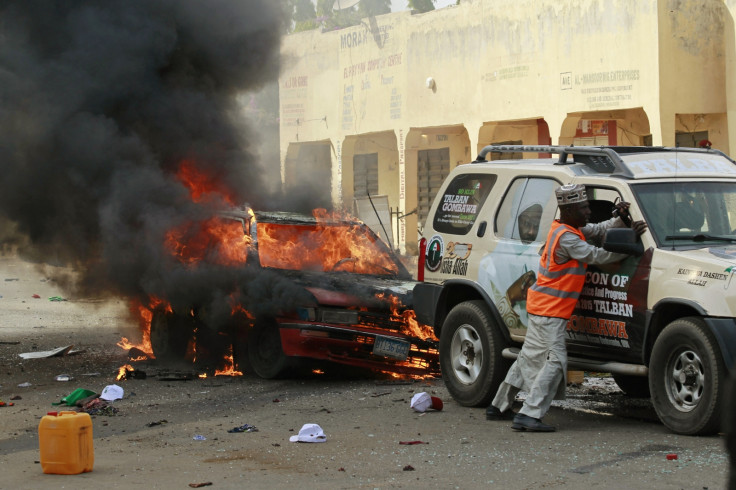Nigeria: 40 feared dead after twin blasts hit Gombe city

More than 40 people are feared dead in Gombe, northeast geria, after a series of bomb blasts ripped through the city.
A witness told AFP that the bombs were exploded in two bus stations on Wednesday (22 July).
The first blast happened at 7:30 pm (1830 GMT) near the entrance to the Dadin Kowa terminus, while the second occurred 20 minutes later in the Dukku area.
Describing the recovery effort a rescue worker said: "So far we have recovered 12 dead bodies from the blast scene. The bodies are badly mutilated and we have several people injured. Our main focus now is to save lives."
So far we have recovered 12 dead bodies from the blast scene. The bodies are badly mutilated and we have several people injured. Our main focus now is to save lives.
A trader, whose shop is near the Dukku bus station, said: "There were two explosions. They happened after I had closed my shop for the day. I and others who were around came back and began pulling out bodies. I counted up to 30 dead bodies. I became sick and left."
Gombe state police spokesman Fwaje Attajiri confirmed the blast but did not give a death toll.
While officials are as yet unable to confirm whether they were suicide attacks or homemade bombs left at the scenes, the blasts bore all the hallmarks of Boko Haram.
The militant group has previously targeted crowded bus stations, markets, mosques and churches during its bloody six-year insurgency.
Due to its proximity to the most-affected states of Borno, Yobo and Adamawa, Gombe has been attacked several times before, with bombers attacking the market and bus station.
Last Thursday, (16 July) a series of improvised explosive devices went off in the market in Gombe city, killing 49.
At least nine people were killed on 17 July in a twin blast in the Nigerian town of Damaturu, Yobe state, while Muslims were celebrating Eid al-Fitr, which marks the end of Ramadan.
e group – renowned for kidnapping women and children and forcing them to carry out suicide attacks –stepped up its attacks during the month of Ramadan, killing dozens of people.
Boko Haram has increased the frequency and intensity of its attacks since Muhammadu Buhari became president on May 29. Since then, more than 750 people have been killed in Nigeria alone, according to an AFP count.
There have also been suicide attacks in Chad's capital N'Djamena, while earlier on Wednesday, explosives strapped to two girls detonated in the central market of Maroua, northern Cameroon, killing 11.
Buhari has vowed to crush the insurgency, which has claimed at least 15,000 lives and made more than 1.5 million homeless since 2009.
After meeting President Obama in the United States on 20 July Buhari vowed to eradiate corruption and terrorism
The two leaders are seeking to improve relations, which had deteriorated during President Goodluck Jonathan's administration.
© Copyright IBTimes 2025. All rights reserved.




















